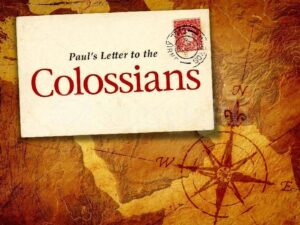Amen and Amen
The word “amen” is found so often in the Bible, but we can so easily overlook just how often it appears. It is of Hebrew origin and became part of the Greek vocabulary. The Hebrew word is found 30 times in the Old Testament and 132 times in the New Testament and is so often simply brought over into the English Bible and translated as, “Amen.” So, if you know this and ever use this word, you are literally speaking three languages. However, we sometimes use words without understanding what they mean.
The word simply means “let it be true” or “it is true.” We often end our public prayers using this word and then the congregation will be part of repeating this word. The Bible shows that in the early church they said this word indicating that they had listened to the prayer, they understood the meaning of the petitions made to God and it was not just the prayer of the one leading the prayer, but it was their prayer also (1 Cor. 14:16). I try to do this in every prayer I hear others pray, but most often it is silent. If the fervent prayer of a righteous man avails much (James 5:16), think of the power of a righteous church!
One point that can so easily be overlooked is the responsibility of the one who leads the prayer. Sometimes those who lead the prayer at Palm Beach Lakes speak so softly that it is impossible for those who are in the audience to hear what is said. Prayers are not more “holy” because we speak softly and those who lead should remember this. I am thankful for the sound system we have, but it simply cannot amplify softer voices. A failure to realize this negates what God had in mind for public prayers. Imagine a sermon being preached, in such soft tones that few were able to hear it. In our Leadership Training Camp for our young people, we strongly urge them to speak so that the person on the back row could hear.
I remember in those early years in the establishment of the church in Fiji, I did not speak Fijian, but I quickly learned the Fijian word for “amen.” The Fijians obviously knew and used this Hebrew/Greek/English word, but sometimes they used the Fijian word which I had never heard. As I was preaching, Fijians were so moved by God’s truth that they would say, ”sa dina.” It literally means “it is true.” When I learned the meaning, it was so encouraging to hear the affirmation of the truth of the gospel spoken by these Christians.
Jesus used this Greek word 103 times in the gospel accounts. We may not be aware of this, but it is Jesus’ way of teaching the truth and then affirming that what I have said is truth, and I want to affirm that “it is truth.” What we may not realize is that in the gospel accounts it is translated as “verily.”


